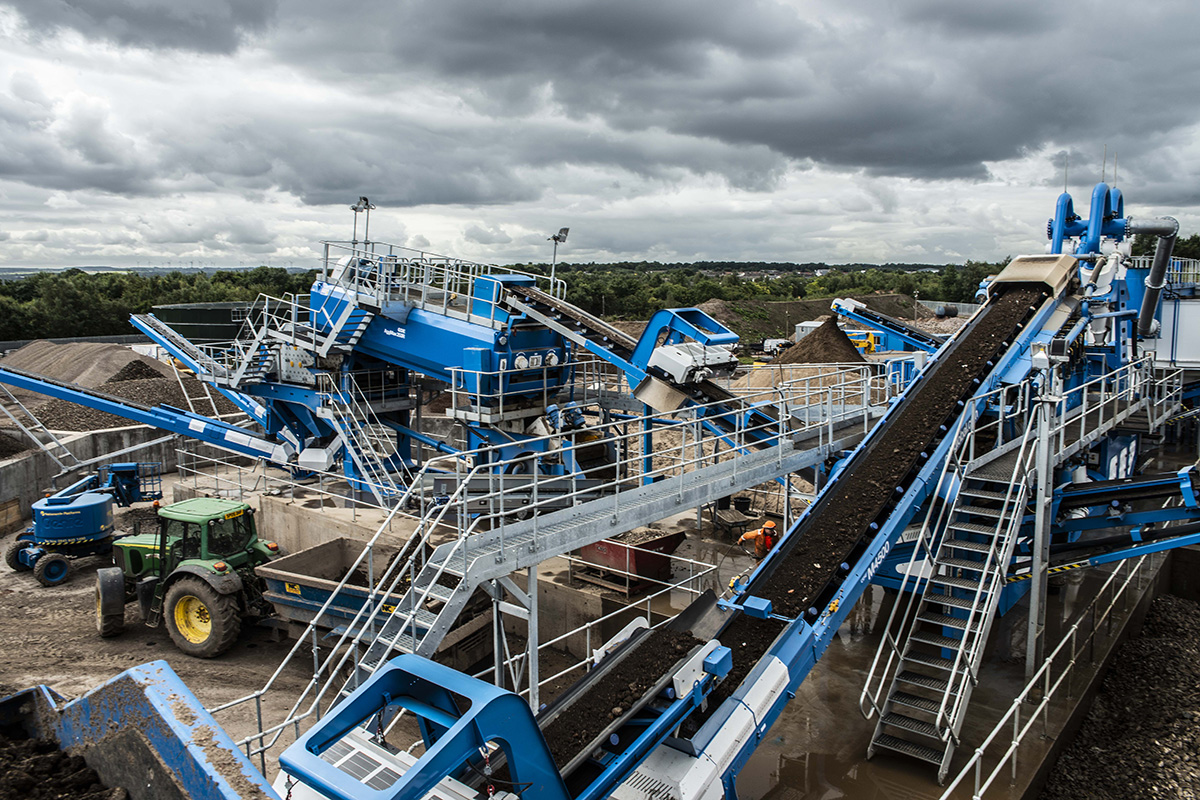
NEW research by Livingston-based resource management specialist Brewster Brothers has highlighted evidence of the ‘growing confidence’ in recycled aggregates.
An analysis of the principal housebuilders operating in Scotland’s central belt found that 98% used recycled aggregates on their sites. This represents a major uplift over the past three years of 33%.
Brewster Brothers added that the majority of businesses also recycle their waste.
However, according to MD Scott Brewster, the potential to increase the use of recycled aggregates further is being threatened by rising costs.
He explained, “Our analysis of nearly 40 operators in the central belt found that housebuilders, civil engineering, and utility contractors, are convinced of the quality and performance of recycled aggregates. The construction industry is beginning to embed circular economy principles within building operations as the technology to recycle aggregates is better understood and embraced.
“That said, the use of recycled aggregates is practically limited to unbound applications such as capping, road subbase, drainage stone, pipe bedding and infill sand when all the relevant British Standards allow their use in non-structural concrete mixes. If we want to protect our natural resources, there is no excuse for using structural grade aggregates in non-structural applications.
“We cannot afford to let sustainability targets slip, but even with exemptions from landfill taxes and the aggregates levy, in the current economic climate, the cost of producing recycled products is on a par with virgin aggregates. While we as a business are seeking solutions through modern technology and self-sustaining renewable energy, we need to use the Scottish Aggregates Levy and the Circular Economy Bill as springboards to broaden industry-wide conversations about how we make doing the right thing affordable over the long term.
“The decade between 2009 and 2019 was the warmest on record, our natural resources are dwindling and the world’s second most consumed resource, sand, is set to run out by 2045. Even as the construction industry makes great strides towards a more sustainable future, more needs to be done and there is still huge capacity for better management of waste and the use of recycled materials. A huge amount of recyclable excavation waste is still lost to the economy through bad practice. We need to force this resource up the waste hierarchy to retain its value.”
Brewster Brothers operates one of the largest closed-loop wash plants in the UK. Over the past four years, the company has diverted over 1 million tonnes of construction, demolition and excavation (CDE) waste from landfill and created more than 750,000 tonnes of recycled aggregates. Any by-products created by the recycling process are also repurposed.








